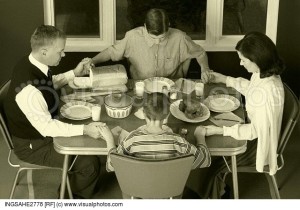 We had a refreshing visit with John. He was cordial, gracious, interesting, and entertaining–in a subtle sort of way. He was one of those people that make you ask, “Tell me more.”
We had a refreshing visit with John. He was cordial, gracious, interesting, and entertaining–in a subtle sort of way. He was one of those people that make you ask, “Tell me more.”
We met him Monday when we went to pick up something at his home. Our visit lasted much longer than the errand required. We were fascinated by the projects he was working on or had recently completed and would’ve liked to stay longer, hear more of his story, and see even more. He seemed accomplished at anything he attempted, but was quite humble as he shared.
I believe it was his humility and joy of life that made our visit so delightful, but something else stood out to me first. While looking at woodworking equipment in his shop, he showed us some beautiful wooden goblets and said, “My wife loves wood, so I made her these.”
Next, John showed us a not-yet-complete table that he designed and is making because his wife wanted it. As we noted other things he had done, it was nearly always because she wanted it. He told us matter-of-factly, but joy was evident in his tone. The thought put into the work and the excellence in the tasks also spoke of his love for her.
Shortly after we got there, his wife walked a good distance from the house to the shop to bring him two pieces of bacon to eat for his breakfast. He left for the shop before breakfast was prepared, so she made sure he had a little in his stomach to keep him going. I was blessed by witnessing their caring relationship after what I would guess was fifty years of marriage.
I’ve kept remembering snippets of our visit and wish all marriages were built on such love and selfless giving one for the other. A happy marriage requires sacrifice, but I’m sure there would be fewer divorces if the sacrifice were always expressed with such love and joy.
That visit also led me to wonder what people experience when they meet us for the first time. Do they sense love and joy in our marriage? Are they blessed to be in our home or to be with us for a brief time? Do they want to stay longer and hear more? Do they leave with a smile on their faces and in their hearts? I would hope so, but out of that visit, I’ve determined to be more giving and less self-serving.
While caring for our elderly parents, I was aware that the act of sacrificial giving for the good of another led to deeper love for that person. How much more would that be true in a marriage relationship?
However, out of our visit, the question that has haunted me most concerns my relationship with God. I didn’t pick up anything that indicated John was a Christian, but out of our visit, I’ve wondered if when people interact with me, do they experience my love for the Lord in the way I felt John’s love for his wife?
He obviously joyed in pleasing his wife. He spent time, energy, thought and creativity in his service to her. It wasn’t a burden to him. He enjoyed it because he loved her. Furthermore, he was quick to speak of her. It didn’t bother him to say that she was his motivation and that he was working for her.
Oh, what a testimony it would be to the world if those of us who call ourselves Christian, glowed with such a love and joy in our relationship with Jesus Christ and in eager, joyful service for Him.
After all, our lives are a testimony, a letter which He has written on our hearts, known and read by all men (see 2 Cor. 3:1-3). Others are watching and are reading our lives to see what it’s like to walk with the Lord.
We are living letters whether we realize it or not. What are others reading?
 have seen crabs trying to climb to the top, but if you watch the news or read comments on news or blog posts, you’ve surely seen the phenomenon. It’s much too common today.
have seen crabs trying to climb to the top, but if you watch the news or read comments on news or blog posts, you’ve surely seen the phenomenon. It’s much too common today.